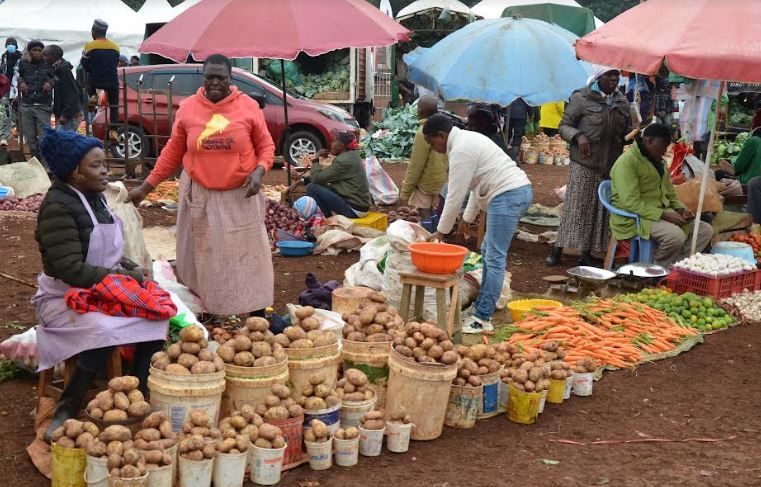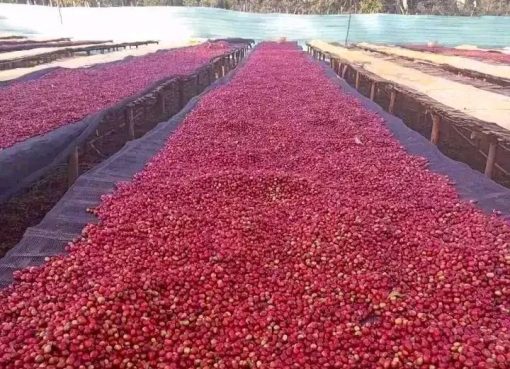Consumers in Nyeri County could soon be forced to dig deeper into their pockets to afford food commodities as floods continue to wreak havoc on farms and roads, causing delays in the delivery of commodities to the markets.
Traders from Nyeri who spoke to Kenya News Agency say that as much as the County has not been badly hit by the floods, the heavy rains have cut off their access to fresh produce from farmers from the neighbouring counties, leaving them with little choice but to pass down the additional cost to the consumer.
A spot check at the Soko Mjinga and Nyeri open-air market shows that a 70-kilogramme crate of tomatoes is retailing at Sh 6,000, up from Sh 4,000 in April. A kilogramme of red onions is currently retailing at between Sh 180 and Sh 200 per kilogramme. This is a Sh20 increase in price from the already pricey Sh160 that consumers were paying in April for a kilogramme of the commodity.
Lucy Mugure, a market vendor at Nyeri open air market, said that traders are now faced with the huge task of accessing the staples as well as convincing customers to buy the commodities at hiked prices. According to Mugure, traders are also confounded with a new challenge due to the wet weather, as the storage of food items has become an uphill task.
“When we experience heavy rainfall, fresh vegetables tend to rot or turn black and go bad easily. This has left us counting losses as the products are going bad before you recover your profit,” she said.
For Mary Warui, another trader, the heavy downpour has created a vicious cycle where farmers are complaining about farm produce rotting on farms while those who had managed to harvest remain stranded with farm produce due to impassable roads. Ms. Warui, who deals in vegetables, says that this has negatively impacted the cost of transporting food staples from the farm to the market, with traders footing the higher transport charges.
“When we prayed for rain, this is not what we expected. The rains destroyed farm produce, roads have been rendered impassable, and accessing interior farms where we get our produce has become a huge challenge. At the moment, we are grappling with many challenges, and the biggest one is that the cost of doing business is very high, especially for us traders,” said Ms. Warui.
Her sentiments were echoed by Janet Mwangi, a potato vendor, who warned of a possible potato shortage in the coming days. Ms. Mwangi says that traders have had to increase the price of a 17-kilogramme bucket of potatoes by Sh 200 to ensure that they remain in business.
She said despite potatoes being plentiful in the farms, most farms were either flooded or roads leading to the farms had been cut off by the heavy downpour, and she is asking the government to take quick and adequate steps to improve the state of roads.
“A bucket that we previously sold for Sh 800 is now selling at Sh 1000. There are farmers who have produce which cannot be harvested because the farms are waterlogged. And even if they harvest, they cannot access the market because of the poor state of our roads,” she said.
“We are selling what was left before the floods started, and that is the main reason there are no potatoes in the market. We are asking the government to improve drainage systems to avoid floods in arable lands and also to ensure that we remain in business,” she added.
By Wangari Mwangi and George Gerish





